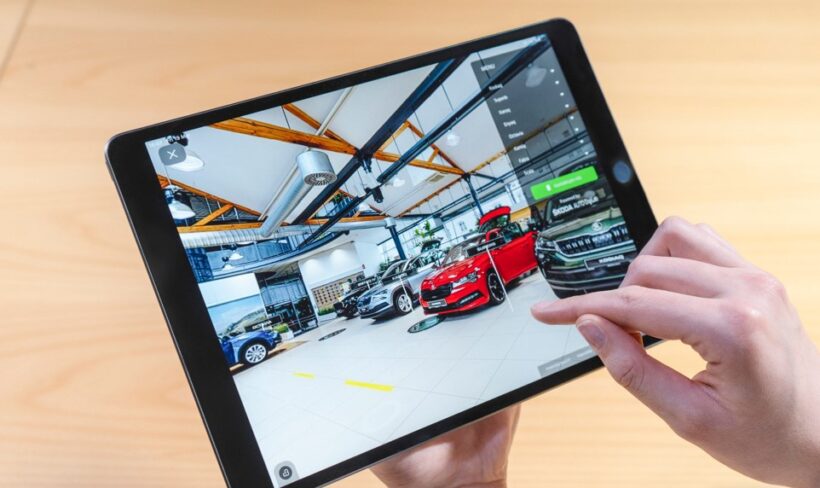In recent years, the way we shop has changed dramatically. The rise of social media platforms has given birth to the phenomenon of social shopping, which allows users to share, discuss, and discover new products and services. This trend has even extended to the automotive industry, where buying a car is no longer a solitary experience but rather a social one.
In this blog post, we will explore several key ways in which social shopping is transforming the car-buying process.
Harnessing The Power Of Social Media Recommendations
The first significant change brought about by social shopping is the way we discover and learn more about products – a great example can be seen here. Instead of relying solely on manufacturer websites and dealership visits, potential car buyers now have access to a wealth of information shared by friends, family, and influencers on social media platforms.
This user-generated content, including reviews, photos, and videos, provides a more authentic and relatable insight into the car ownership experience, ultimately influencing purchasing decisions.
Democratizing Information
In the past, car dealerships held the majority of the information about car models, pricing, and financing. With the rise of social shopping, car buyers now have access to all the information they need at their fingertips.
Social media platforms are becoming a hub for sharing reviews, personal experiences, and expert advice about various car models and brands, which allows potential buyers to make well-informed decisions.
Personalized Shopping Experience
Social shopping has enabled a more personalized shopping experience. Social media platforms, equipped with advanced algorithms, analyze user behavior, preferences, and search history to provide highly tailored recommendations.
This has transformed the car buying process, making it more personalized than ever before. Consumers now receive recommendations for cars that match their preferences, budget, and lifestyle.
Peer Reviews And Recommendations
Social shopping thrives on user-generated content, particularly reviews and recommendations. It’s not uncommon to see people asking for car recommendations on social media platforms.
People trust the opinions of their peers more than they trust traditional advertisements. This word-of-mouth marketing has been supercharged by social shopping, as it allows people to share their experiences, good or bad, with a global audience.
Community-Driven Discussions And Comparisons
Social shopping has given rise to online communities where car enthusiasts and potential buyers can engage in conversations about various makes and models. Through platforms like Facebook groups, Reddit forums, and car-specific websites, people can ask questions, share experiences, and compare different vehicles based on their preferences and needs.
This not only helps buyers make more informed decisions but also creates a sense of camaraderie among car enthusiasts.
Crowdsourced Financing Options
Social shopping has also made an impact on how people finance their car purchases. With the rise of crowdfunding and peer-to-peer lending platforms, car buyers can now crowdsource funds for their dream vehicle.
Additionally, online platforms like LendingClub and Prosper provide access to competitive loan rates and personalized financing options, allowing buyers to bypass traditional banks and dealerships. This increased transparency and flexibility in financing options empower consumers to make the best financial choices for their situation.
Influencer Marketing And Partnerships

Influencer marketing has become a crucial component of social shopping, with companies partnering with social media personalities to promote their products. The automotive industry has also embraced this trend, and influencers are now an integral part of the car-buying experience.
These influencers not only showcase the vehicles on their channels but also share insights into their ownership experience, performance, and even post-purchase services. Car buyers often trust the opinions of these influencers, making their endorsements a powerful tool in shaping purchase decisions.
Virtual Showrooms And Test Drives

Finally, the rise of social shopping has made a significant impact on the way we experience and interact with cars before making a purchase. Virtual showrooms, enabled by advanced technology like augmented reality (AR) and virtual reality (VR), allow users to explore vehicles in detail from the comfort of their homes.
Additionally, some automakers offer virtual test drives that simulate the driving experience using VR headsets. These immersive experiences give buyers a more accurate understanding of a car’s features and capabilities, leading to more confident purchasing decisions.
Gamification And Reward Systems
Another innovative aspect of social shopping that has made its way into the car-buying experience is gamification and reward systems. Brands and dealerships are now incorporating game-like elements into their platforms, such as quizzes, challenges, and leaderboards, to engage potential car buyers and enhance their shopping experience.
By participating in these interactive activities, users can earn points, badges, or other rewards, such as discounts or exclusive access to limited-edition models.
Seamless Transactions
One of the significant benefits of social shopping is the ability to conduct seamless transactions. Consumers can now purchase cars directly from their social media platforms. Car manufacturers and dealerships are capitalizing on this trend by providing detailed car listings on their social media profiles.
This eliminates the need for physical visits to multiple dealerships and streamlines the car buying process.
Engaging Content And Interactions
The rise of social shopping has necessitated the creation of engaging content and interactive experiences. Car dealerships are turning to immersive technologies like virtual reality (VR) and augmented reality (AR).
This interactive content, shared on social media platforms, not only keeps potential buyers engaged but also provides a near-realistic sense of the product, enhancing the decision-making process.
Community Building
Social shopping goes beyond mere transactions. It fosters community building, allowing car enthusiasts to connect, share experiences, and learn from each other. Brands are leveraging this aspect to build and nurture relationships with their customers, instilling brand loyalty and customer retention.
In Conclusion
The rise of social shopping is an exciting development in the world of e-commerce. It’s not just about shifting the place of purchase from physical stores to online platforms; it’s about reshaping the entire buying process. In the context of the automotive industry, social shopping is empowering consumers, personalizing experiences, fostering community, and introducing unprecedented convenience.
As we move forward, it will be interesting to see how this trend evolves and what other industries it will disrupt. But for now, it’s safe to say that social shopping has changed the way we buy cars, for the better. In the age of digital transformation, the power lies in the hands of the consumer, and social shopping is a testament to this shift.


